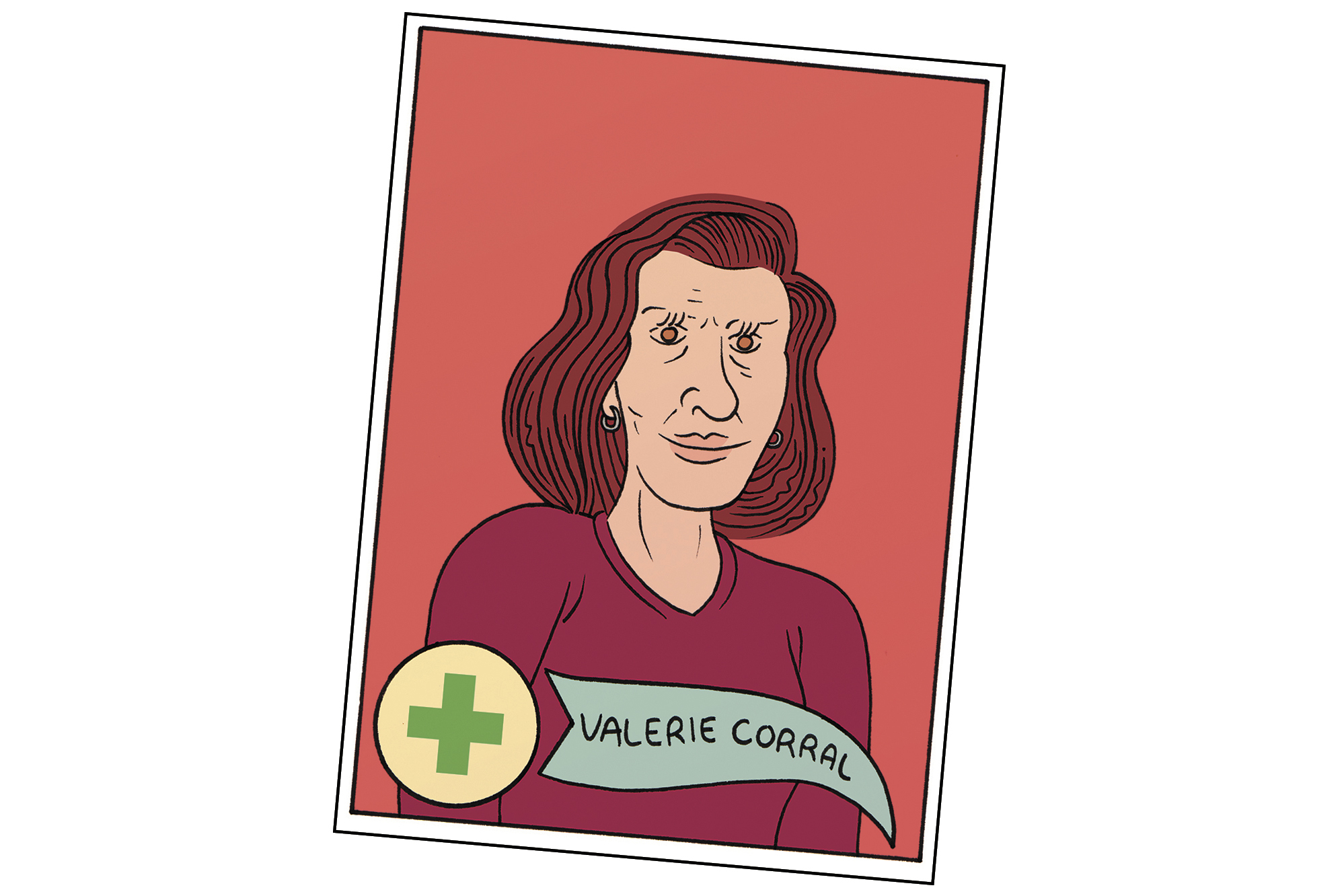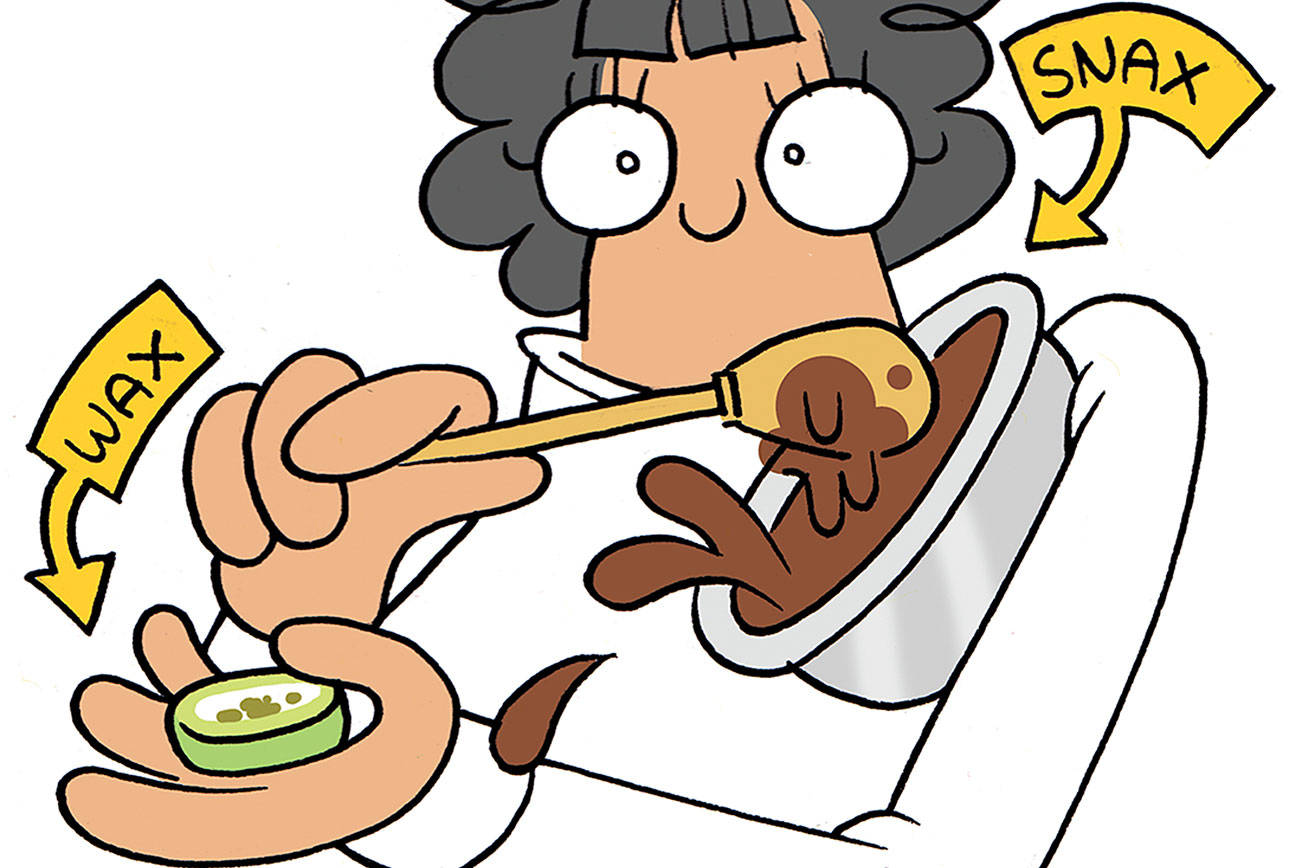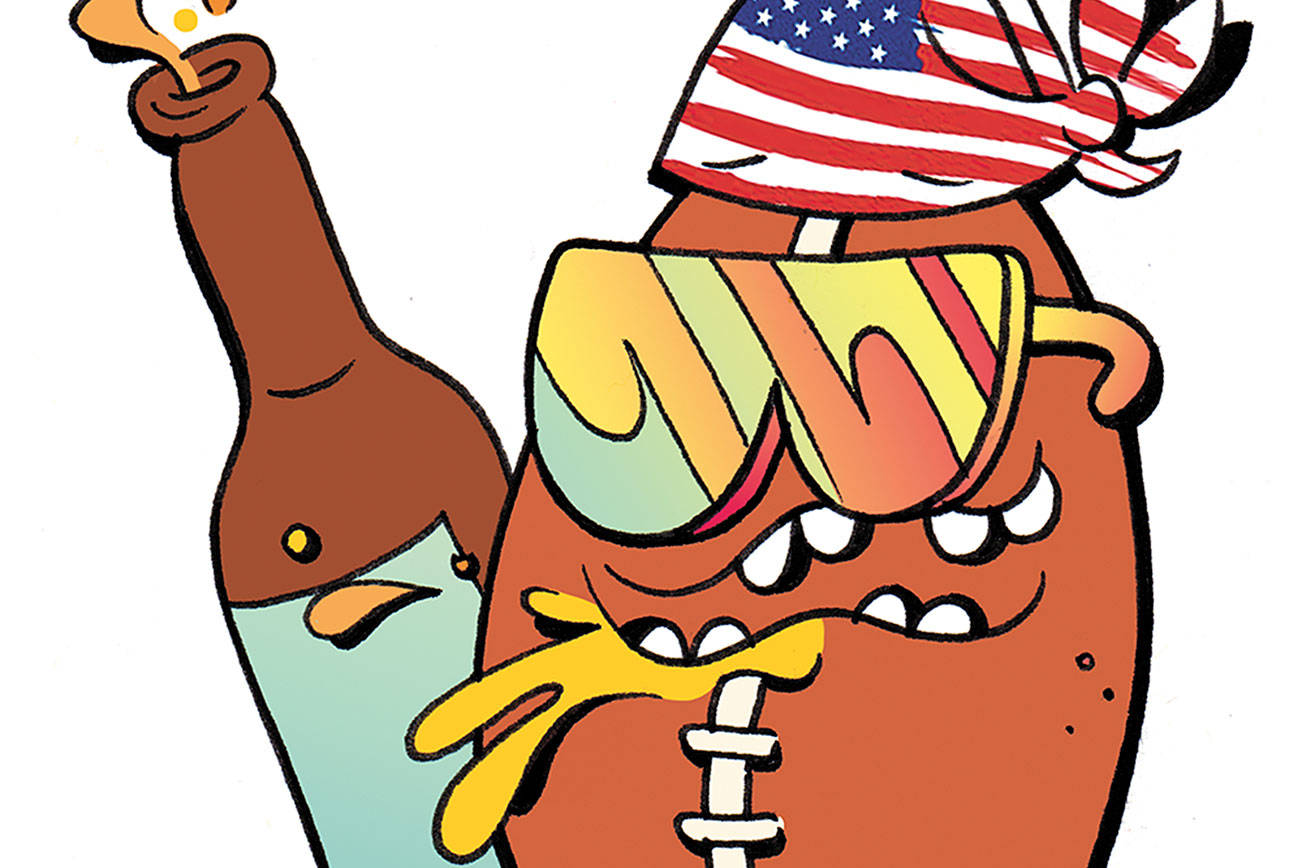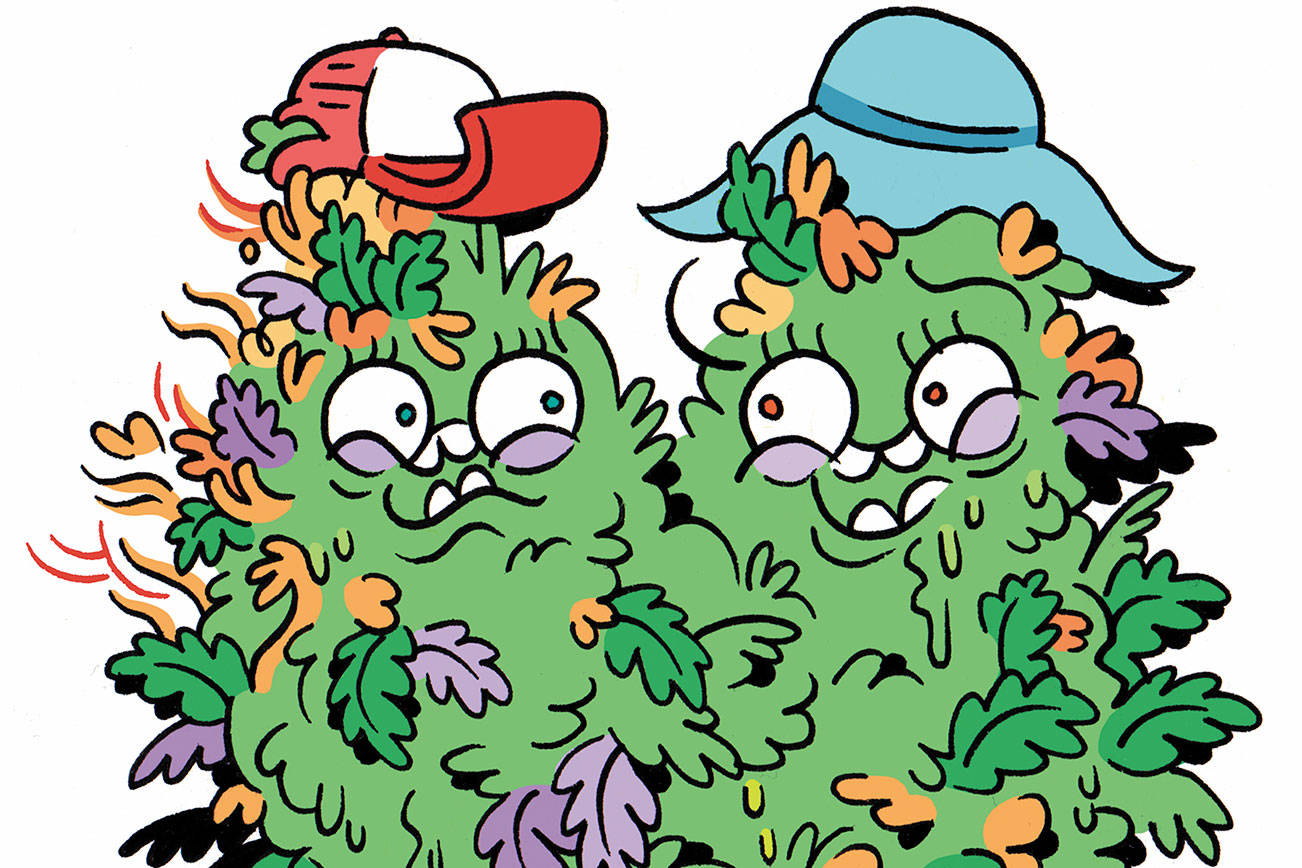“Something happened when they pushed me to the ground and put a gun to my head.” That quote is from Valerie Corral, a critical actor in the medical-marijuana movement. She was talking about the DEA raiding her garden and home in 2002. It was the third such raid she and her then-husband Mike Corral had suffered at the hands of law enforcement in a 10-year span, and it is her response to this act, as well as other pivotal work, puts her on my Cannabis Luminaries list.
Corral became interested in medical cannabis in the mid-1970s while recovering from a strange car accident in the Nevada desert. While she was driving on a lonesome stretch of road outside Reno, Nev., a small prop plane came out of the sky, bumping the roof of Corral’s Volkswagen and sending it careening end over end through rocks and brush. Her tiny 5-foot frame was knocked violently around the inside of the vehicle, leaving her with brain damage and epilepsy. Both conditions caused crippling migraines, blackouts, convulsions, and grand mal seizures. She was only 20 years old.
By 1975, Corral was completely addicted to painkillers and living in a fog. It was Mike who suggested trying pot. Within two years of beginning regular cannabis use, Corral was seizure-free.
The duo bought a bit of land in the Santa Cruz mountains with money Corral had received from the accident settlement, and began growing weed. Soon she was passing it out to folks she knew who were going through the ordeal of cancer.
The Corrals lived happily for a decade, tending their weed garden and helping friends. In 1992 they were arrested on two separate occasions for cultivating cannabis. Both times the charges were dropped. By the end of the year, the Corrals had become active political advocates for medical marijuana, and in 1993 started the nonprofit group Wo/Men’s Alliance for Medical Marijuana, the first legally recognized nonprofit medical-cannabis group in America.
In 1996, Corral worked with Dennis Peron, Mary Jane Rathbun, and others to create California Prop 215, ushering in a national conversation around medicinal-cannabis regulation. Santa Cruz deputized the couple to aid them further in their cause and offer some level of legal protection.
However, that protection did not reach to the federal level. In 2002 the DEA raided their home, destroying 150 medicinal plants. The government never charged the Corrals with anything, and a few weeks later, WAMM was back at it, passing out medicine at Santa Cruz City Hall.
In 2003, as a sign of solidarity, the City of Santa Cruz and the ACLU helped WAMM sue the federal government for the 2002 raid. In 2008 a judge ruled in favor of WAMM, stating that “much as the federal government may prefer that California keep medical-marijuana illegal, it cannot force the state to do so.”
WAMM, now in its 25th year, provides donation-based organic cannabis, related products, and hospice care to terminally ill patients, bringing together patients, care providers, and supporters. Corral personally has been present for nearly all 250 deaths the group has seen in its quarter-century of existence, though the group has seen hundreds of inspiring recoveries as well.
“You have a car accident and you think you get a brain trauma out of it,” Valerie said in a 2001 interview, “and instead it becomes this wonderful opportunity to meet people at the most crucial time in their lives.”
stashbox@seattleweekly.com







